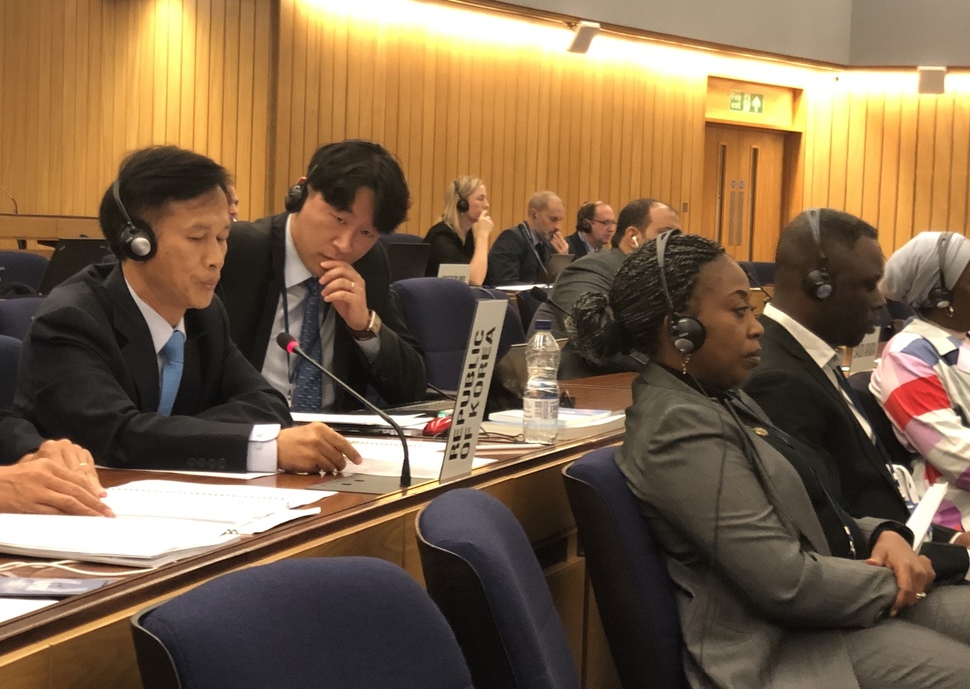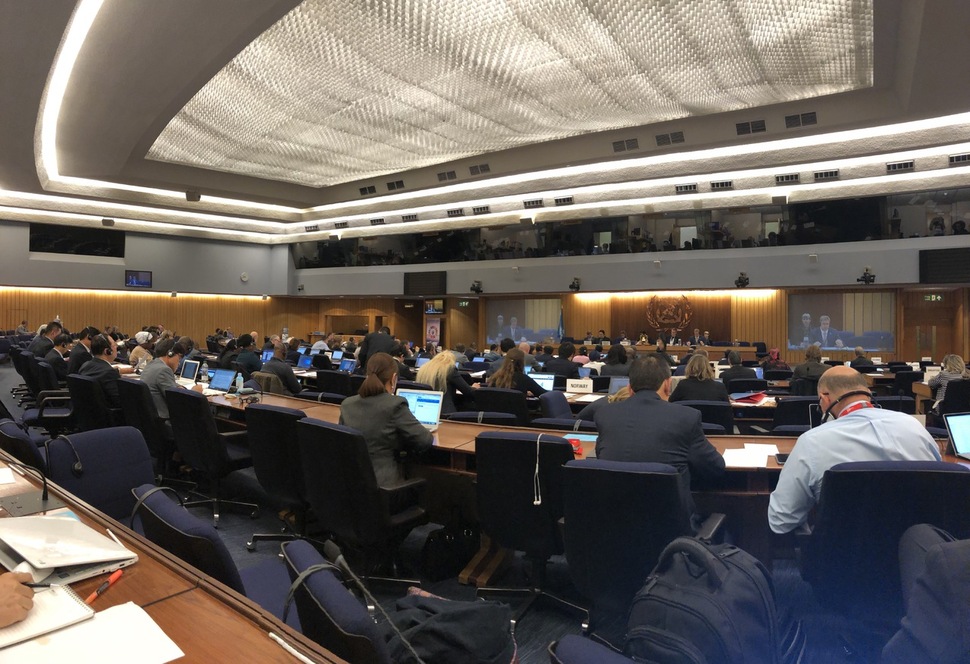 |
|
Song Myeong-dal, the Ministry of Oceans and Fisheries ocean environment policy officer, represents South Korea during a consultative meeting of contracted parties to the London Convention and London Protocol on Oct. 7. (provided by the MOF)
|
Japan says it will keep international community updated on progress
The South Korean Ministry of Oceans and Fisheries (MOF) raised the danger of Japan’s ocean dump of contaminated water from the Fukushima Nuclear Power Plant as an international issue at a meeting in London concerning an international convention. Japan responded by saying it would keep the international community informed of the progress on an ongoing basis. The developments suggest South Korea was successful in raising international interest in and concern about Japan’s irresponsible approach to the disposal of contaminated water from Fukushima. On Oct. 10, the MOF reported that the day before, representatives had attended a consultative meeting of contracted parties to the London Convention and Protocol on the Prevention of Marine Pollution by Dumping of Wastes and Other Matter – which opened in London on Oct. 7 – to express concerns to Japan concerning the handling of the contaminated water from Fukushima and request ongoing interest in the issue at the consultative meeting level. The meeting was attended by representatives of 47 contracted parties, as well as international organizations such as the OECD and NGOs including Greenpeace. “The Japanese government has recently talked several times about the ‘unavoidability’ of an ocean dump as a way of dealing with contaminated water from the Fukushima Nuclear Power Plant,” Song Myeong-dal, MOF ocean environment policy officer and senior South Korean representative at the meeting, said on Oct. 9. “If [Japan] does release contaminated water from the plant into the ocean, this could have an impact on the global oceanic environment and be in violation of the aims of the London Protocol,” Song warned. Article 2 of the London Convention and Protocol states that contracting parties “shall individually and collectively protect and preserve the marine environment from all sources of pollution and take effective measures [. . . ] to prevent, reduce and where practicable eliminate pollution caused by dumping or incineration at sea of wastes or other matter.” Song stressed that the Japanese government “needs to be transparent about its means of handling contaminated nuclear power plant water, adequately communicating and discussing important matters such as its handling methods and schedule with neighboring countries and the international community in the future and deciding on a safe and rational approach.” “In order to find a method of contaminated nuclear power plant water handling that the international community can be confident is safe, I think this matter should be discussed on an ongoing basis by the consultative meeting of contracted parties to the London Convention and Protocol ,” he suggested.
 |
|
A consultative meeting of contracted parties to the London Convention and London Protocol on Oct. 7. (provided by the MOF)
|







